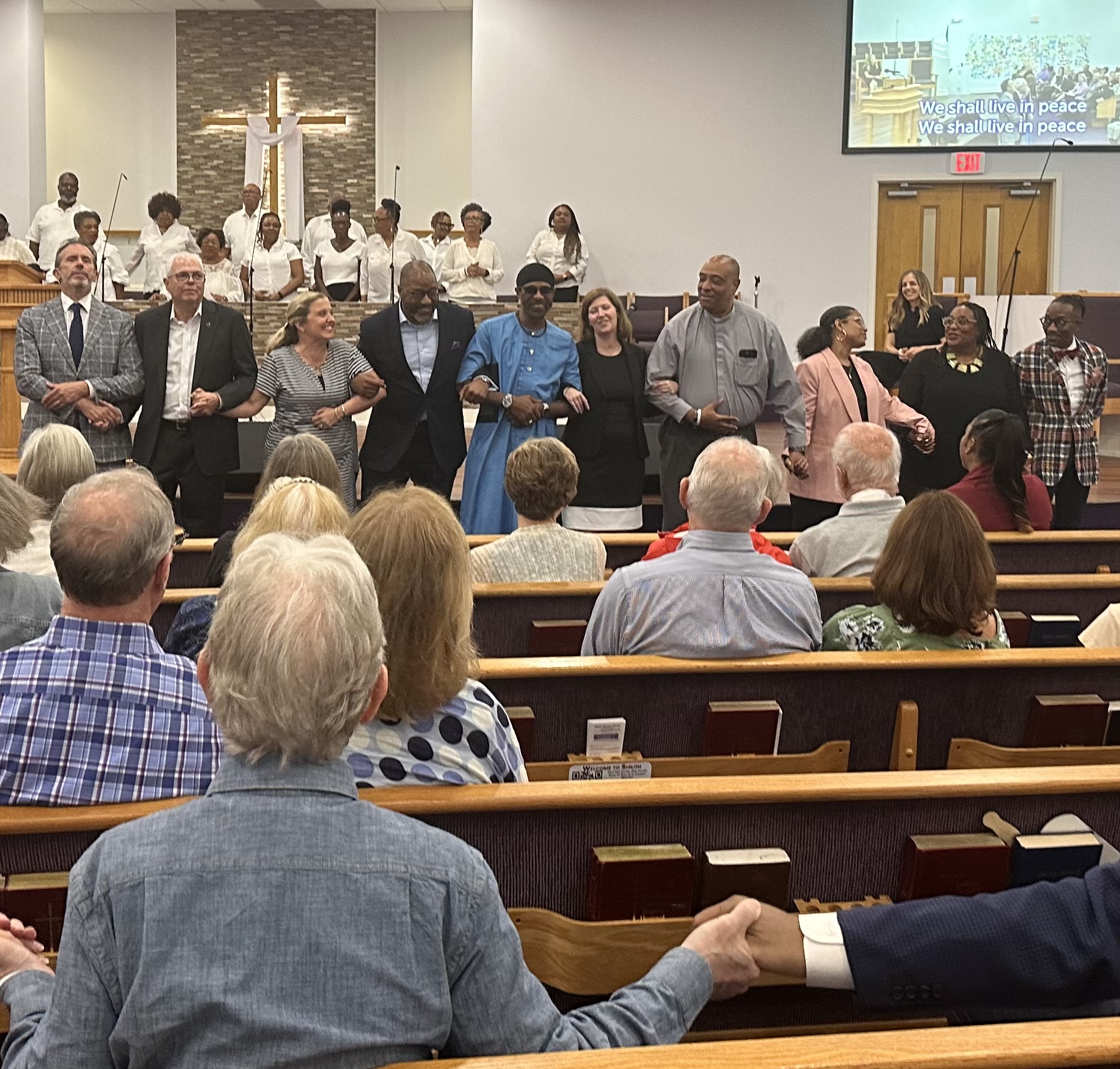Shiloh Baptist Church’s Reverend Dr. Taft Quincey Heatley (far left) sits with city officials at the remembrance memorial for Benjamin Thomas, victim of a lynching in Alexandria on Aug. 8, 1899.
It’s important to remember the lynchings of Joseph McCoy and Benjamin Thomas on the dates the lynchings occurred, said Rabbi David Spinrad of Beth El Hebrew Congregation, a member of the Remembrance Planning Committee, at Shiloh Baptist Worship Center.
The 2024 remembrance for Benjamin Thomas, 16, who was lynched in Alexandria on Aug. 8, 1899, was different than previous years, Spinrad noted. “The challenge is not to just let it become rote and become a lifeless observance. One of the ways we continue the remembrance is to evolve into more educational opportunities,” he said. To that end, the speaker at the event was Rachel Laser, an educator on racism who heads up Americans United for the Separation of Church and State.
At the remembrance event Laser gave a speech entitled, “Why the Parental Rights Movement is Anti-Civil Rights."
 Members of the Shiloh Mass Choir joined with Alexandria Community Remembrance Project Interfaith Group and audience in singing “We Shall Overcome” in Shiloh Baptist Church.
Members of the Shiloh Mass Choir joined with Alexandria Community Remembrance Project Interfaith Group and audience in singing “We Shall Overcome” in Shiloh Baptist Church.
Covid restrictions and requirements “spurred an anti-governmental sentiment that merged with the backlash, or maybe we should call it a ‘whitelash’ against Black Lives Matter movement and LBGTQ rights movement, and especially the Trans rights movement,” Laser said. “And it coalesced into what we call the parental rights movement.”
That movement is connected to White Christian Nationalism and its broader attack on public education, Laser said. It claims to be about protecting parents rights, but in fact is only interested in some parents rights and some students rights.
Laser said it’s important to “fight for the free and equal society that America promises all of us.”
Find hope, she said, pointing to the gathering that evening as a reason for hope.
Remember:
On Tues. Aug. 8, 1899, Benjamin Thomas, a native Alexandrian, 16-years-old, was lynched in Alexandria at the corner of Fairfax and King Streets after being dragged a grueling half mile from the jail on Princess and St. Asaph Streets. Accused by his next door neighbor’s seven-year-old daughter of assault and arrested on the child’s testimony alone, Thomas never wavered in his assertion of his innocence. In the aftermath, both Black and white Alexandrians believed he was innocent. News of his murder, after local Black leadership warned authorities of a threat to lynch him, caused work stoppages around the region.
On Mon. Aug. 28, 1899, more than 600 people attended a mass meeting at Shiloh Baptist Church for two reasons, to memorialize Benjamin Thomas and to protest his lynching. At the packed event, leaders from churches in Alexandria and the District called for an economic boycott of any business associated with those who took part in the mob.
